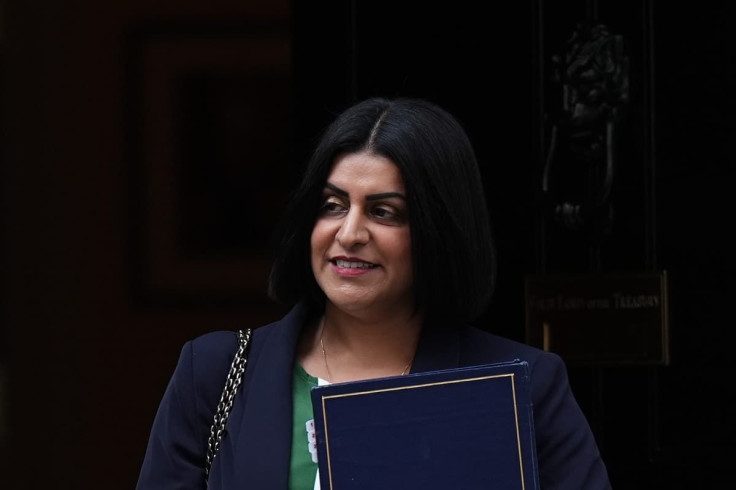Home Office Looks to Emulate Denmark's Stringent Rules in Changing UK's Immigration System
Home Secretary Shabana Mahmood dispatched officials to Denmark to study their border control and asylum policies

The UK's immigration and asylum rules are expected to undergo major changes later this month, modelled on Denmark's strict immigration and asylum policies.
The Home Office is set to make the announcement after sending officials to the Nordic nation to study its border control and asylum system. The move aims to address the rising number of refugees crossing the UK's borders.
However, some Labour MPs are opposed to adopting Denmark's model, which is widely regarded as one of the toughest in Europe.
Regaining Border Control
Immigration concerns have steadily risen in the UK over the past five years, partly due to the increase in migrants arriving via small boat crossings. A recent YouGov poll reflected these concerns, showing that voters are now more worried about migration than about the state of the economy.
Home Secretary Shabana Mahmood pledged at the Labour conference in September to 'do whatever it takes' to regain control of Britain's borders.
In addition to re-establishing border laws, the directive is also seen as a response to the growing popularity of Nigel Farage's Reform Party, which is leading in some polls and has promised a radical overhaul of the immigration system if it comes to power.
Denmark's Rules on Asylum and Family Reunion
Secretary Mahmood was reportedly impressed by Denmark's success in reducing asylum approvals to a 40-year low and tightening rules on refugee family reunions.
The Nordic nation grants protection to refugees persecuted by foreign regimes. However, most are now only allowed to remain in the country temporarily, with the government reserving the right to repatriate them once their home nations are deemed safe.
For those who have stayed longer, the requirements for permanent settlement have been revised, now including a longer period of residence and full-time employment.
When applying to bring family members to Denmark, refugees must usually prove that they cannot live safely without their partner or children. Partners seeking reunion must both be at least 24 years old and have passed a Danish language test, which authorities say helps prevent forced marriages.
The partner residing in Denmark must not have claimed state benefits for the past three years and must also provide a financial guarantee. In addition, families living in designated 'parallel societies' are not eligible for family reunification at all.
Why Denmark Tightened Immigration Rules
The BBC spoke to Mahmood's Danish counterpart, Rasmus Stoklund, Minister for Immigration and Integration, about their stricter policies. He said the measures were about protecting Denmark's social fabric.
'We expect people who come here to participate and contribute positively, and if they don't, they aren't welcome,' he said.
Like the UK, Denmark is also concerned about whether the European Convention on Human Rights (ECHR) makes the expulsion of foreign criminals more difficult.
Stoklund expressed support for the UK's stance, saying that his government is also reviewing possible reforms.
'I think it's very positive every time I hear that other countries have the same concerns and are frustrated in the same way as many of us in Denmark are,' he added.
Labour's Divided Response
While some Labour MPs fear the move could alienate progressive voters, others in traditional 'red wall' seats vulnerable to Reform's growing influence want ministers to go even further than Denmark.
Whatever reforms are eventually announced, it appears increasingly likely that the number of refugees entering the UK will fall sooner rather than later.
© Copyright IBTimes 2025. All rights reserved.

















